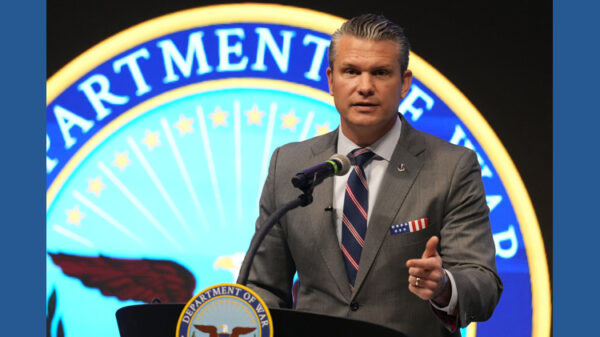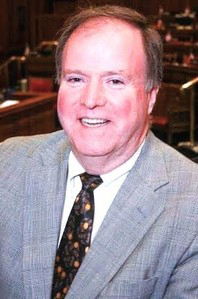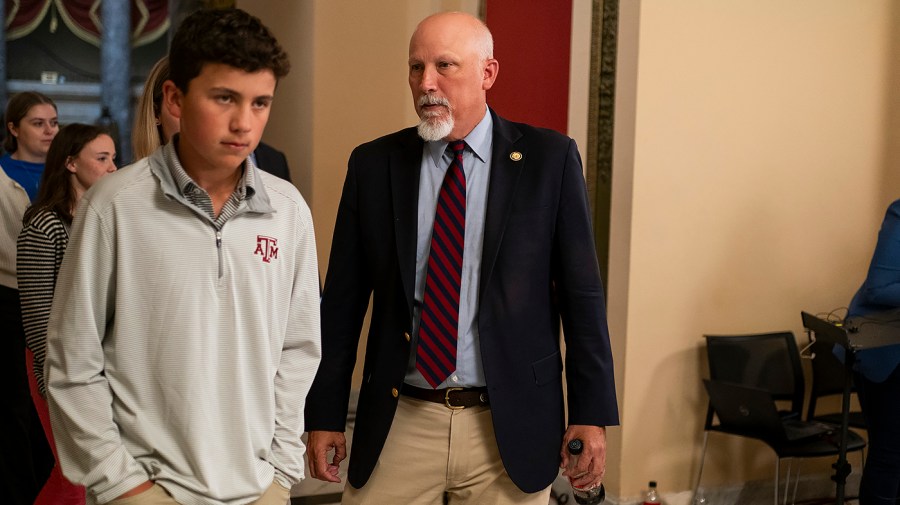The political landscape of the House Republican Conference is poised for significant change as Chip Roy, a prominent member of the House Freedom Caucus, announced his candidacy for Texas attorney general. His departure, alongside several other Freedom Caucus members seeking higher office, could reshape the dynamics within the GOP following the midterm elections.
Roy, known for his outspoken nature, revealed his plans on Thursday. He is not alone in this pursuit; Reps. Andy Biggs (Arizona), Byron Donalds (Florida), and Ralph Norman (South Carolina) are also running for governor, while Rep. Barry Moore from Alabama recently launched a Senate bid. Additionally, Rep. Andy Ogles (Tennessee) is considering an appointment to the Senate if current Senator Marsha Blackburn wins the governorship.
The exit of these hardline members may offer a chance for the GOP to foster greater internal cohesion. Rep. Derrick Van Orden (Wisconsin), who has frequently criticized the Freedom Caucus, expressed hope that Roy’s departure would lead to a more productive Congress. He described Roy as a “contrarian” and an “obstructionist,” suggesting that his absence could alleviate some of the friction experienced in recent legislative sessions.
Despite this, some Republican leaders view Roy as a crucial link between the Freedom Caucus and the broader House GOP. Rep. Stephanie Bice (Oklahoma), who has worked with Roy during negotiations, emphasized the need for members from the Freedom Caucus to step up and fill the potential void left by his departure. She highlighted Roy’s ability to engage in productive discussions and his role in advocating for conservative policies.
Roy has been a key figure in navigating the complexities of GOP leadership, particularly over the past few years when hardline resistance has delayed significant votes. His influence was evident during the election of former Speaker Kevin McCarthy (California) in January 2023, where he secured a position on the House Rules Committee, a vital stop for legislation before it reaches the floor.
Critics within the party have questioned the efficacy of the Freedom Caucus, citing instances where Roy and his colleagues delayed crucial votes. This summer, Roy was among the last holdouts on a major tax cut extension supported by former President Donald Trump. After extensive negotiations, Roy ultimately supported the bill, which raised questions about the effectiveness of his earlier resistance.
Some supporters within the Freedom Caucus, however, argue that Roy’s efforts helped shift the legislation further to the right, securing concessions such as increased spending reductions and expedited work requirements for Medicaid. Rep. Bice recounted her experiences collaborating with Roy and Donalds, noting their understanding of the broader GOP landscape and their negotiation skills.
Roy’s background as a former chief of staff to Senator Ted Cruz has contributed to his reputation as a strategic thinker in both messaging and policy formulation. Wade Miller, executive director at Citizens for Renewing America, praised Roy’s unique ability to combine principled policy advocacy with strategic negotiation tactics, a skill set he believes is rare among congressional members.
The leadership within the GOP may welcome the potential departures of Roy and other Freedom Caucus members, as it might ease some of the tensions that have colored recent legislative sessions. While Speaker Mike Johnson (Louisiana) has not publicly commented on Roy’s candidacy, it has been reported that Roy informed leadership of his intentions ahead of the announcement.
Roy’s sometimes contentious relationship with Trump has also drawn attention. Following his opposition to raising the national debt ceiling without spending restrictions, Trump invited a primary challenger to run against Roy. Despite this, several Freedom Caucus members maintain that Roy is an ally of Trump. Rep. Keith Self (Texas) and Rep. Lauren Boebert (Colorado) echoed these sentiments, emphasizing Roy’s commitment to Trump’s agenda.
The ongoing shifts within the Freedom Caucus reflect a broader ambition among its members. According to Michael E. Bednarczuk, a political science professor at Austin Peay State University, Freedom Caucus members are five times more likely to pursue higher office compared to their non-Freedom Caucus colleagues. Since its formation in 2015, approximately 17% of Freedom Caucus members have sought higher positions, compared to just 3% among the rest of the GOP.
Looking to the future, some observers point to freshman Rep. Brandon Gill (Texas) as a potential rising star within the Freedom Caucus, while Miller noted the group’s growing state network of legislators who share their vision.
With Roy’s recent pronouncement, the Freedom Caucus appears to be undergoing a transformation. He characterized it as a breeding ground for future leaders, stating on X, “A new generation is emerging… The team is growing.” As the midterms approach, the implications of these departures will unfold, potentially reshaping the priorities and strategies of the House GOP in the coming years.






































































